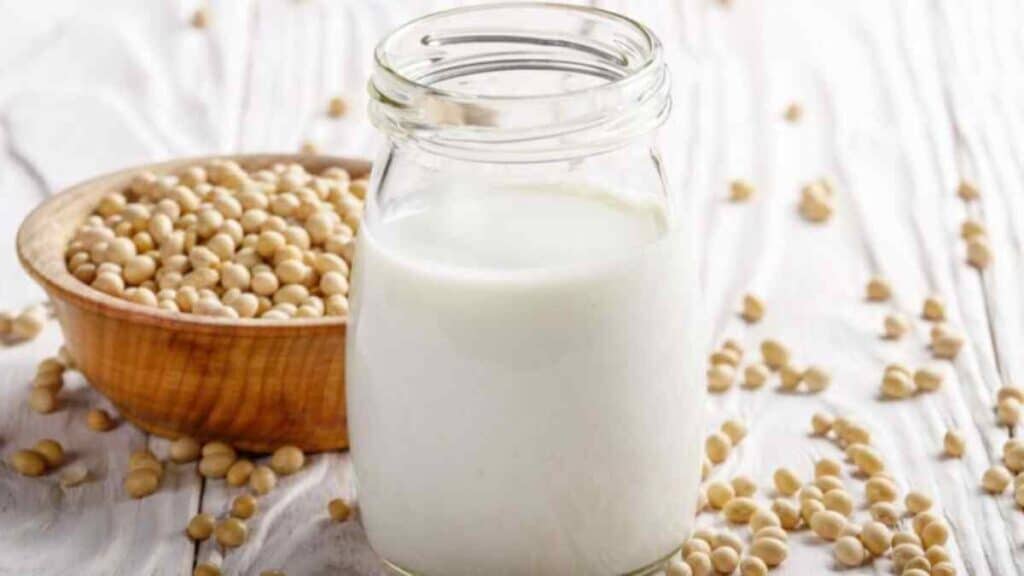As a new parent, one of the most important decisions you’ll make is choosing the top-rated formula for your baby. With so many options on the market, it can be overwhelming to figure out which is the best for your little one.
This article will look at the top-rated baby formulas on the market today and give you an overview of their ingredients, pros, and cons. We’ll also provide a guide for what to look for when choosing a formula and offer tips for transitioning your baby to a new formula. So, let’s dive in and look at the top-rated baby formulas of 2023!

Introduction to Baby Formula Top-Rated Options
When it comes to feeding your baby, various options are available to suit different needs and preferences. Breast milk, infant formula, and a combination are the most common options.
Breast Milk
Breast milk, also known as human milk, is the optimal source of nutrition for babies. It is rich in essential nutrients, antibodies, and other beneficial substances that support the growth and development of infants. One of the unique components found in breast milk is human milk oligosaccharides (HMOs), a type of complex sugar that is not digested by the baby but instead supports the growth of beneficial gut bacteria.
The American Academy of Pediatrics states that HMOs play a crucial role in developing the infant’s immune system and may protect against certain infections and chronic diseases. Additionally, the Milk Fat Globule Membrane (MFGM) found in breast milk provides important lipids that are beneficial to cognitive development in breastfed babies. The American Academy of Pediatrics strongly recommends breastfeeding as the first option, if possible, as it contains all the necessary nutrients for an infant.
Breastfeeding provides benefits such as optimal hydration, temperature regulation, and emotional well-being for babies. It provides all the necessary nutrients and antibodies for a baby’s growth and development. In some cases, it may be necessary to supplement with infant formula, either because the baby is not getting enough breast milk or because the mother is unable to breastfeed.
Infant Formula
Infant formula is a type of food that is specifically designed for babies who are not breastfed. Various types of formula are available, including organic baby formula, powdered formula, ready-to-feed formula, and hypoallergenic formula. These formulas can be further classified into cow’s milk-based, soy-based, and hydrolyzed protein formulas.
The American Academy of Pediatrics recommends to fed infants an iron-fortified formula until they are 12 months old. It comes as a liquid concentrate. It is designed to meet all of your baby’s nutritional needs over its first year. The amount of formula that a baby needs will depend on their age, weight, and overall health. Following the formula package instructions are important to give your baby the correct procedure.
It’s also important to consult your pediatrician if you have any concerns about your baby’s nutrition or if you notice any changes in their feeding habits. They can recommend the best formula for your baby based on their unique needs.
Factors to Consider When Choosing a Top-Rated Baby Formula
When choosing a baby formula, several factors must be considered to ensure you select the best option for your child. One important factor to consider is whether or not the formula is organic. Organic formulas are made with ingredients that are grown without the use of synthetic pesticides, fertilizers, and genetically modified organisms. Another factor to consider is the presence of artificial growth hormones, as some parents may prefer to avoid these ingredients.
Additionally, it’s crucial to consider how much formula your baby will need and whether liquid or powdered formulas are a better fit for your lifestyle. The type of milk protein used in the formula, such as cow’s milk or soy protein, is also an important consideration.
Some parents may prefer cow’s milk-based formula, while others may opt for soy-based one. Some parents may also want to look for infant formula with iron, as iron is an important nutrient for babies. Additionally, consider the presence of fatty acids, such as DHA and ARA, for the development of the brain and eyes.
Human milk oligosaccharide is also a beneficial ingredient in some formulas, which can help support a baby’s immune system. Many parents should consider the ingredients in the formula and select an option free from any potential allergens. Other factors to consider are the taste and consistency of the formula and whether it is organic or non-GMO.
Remember to read the label carefully and compare different products with all these factors in mind. Nutritional content is another vital factor, as different formulas offer different levels of essential vitamins and minerals. It ensures that the formula is appropriate for your baby’s age, growth, and development.
Ultimately, it is vital to take the time to research different options when choosing a formula; it’s essential to consult with a pediatrician or a nutritionist to determine the best choice for your baby’s individual needs and to ensure it is used safely.

Top-Rated Cow’s Milk-Based Formula
When it comes to cow’s milk-based formula, there are several top-rated options available on the market. Many parents prefer to choose an organic formula. In contrast, many parents avoid formulas containing artificial growth hormones.
Several cow’s milk-based infant formulas are available on the market, and choosing the right one for your baby can be overwhelming. However, many top-rated formulas are known for their high-quality ingredients and closely mimic breast milk. Some of the top-rated cow’s milk-based formulas including:
Similac Pro-Advance
Similac Pro-Advance is a nutritionally complete formula designed to support the immune system.
Enfamil Enspire
Enfamil Enspire is a premium formula specially formulated with probiotics and other essential nutrients.
Gerber Good Start GentlePro
Gerber Good Start GentlePro is a gentle formula that is easy to digest and made with non-GMO ingredients.
Earth’s Best Organic Infant Formula
Earth’s Best Organic Infant Formula is a USDA-certified organic formula made with non-GMO ingredients and free from artificial growth hormones, pesticides, and antibiotics.
These brands are known for producing high-quality formulas that provide essential nutrients for babies’ growth and development.
Top-Rated Soy Based Formula
Soy-based formulas are a type of infant formula that is made using soy protein and oil. These formulas are considered top-rated options for babies who cannot tolerate cow’s milk-based formulas or for those who have a vegetarian or vegan lifestyle. Soy formulas are a good alternative for babies who have cow’s milk allergies or sensitivity, which is a common condition among infants.
The protein in the soy-based formula is broken down, making it easy to digest and reducing the risk of an allergic reaction. Soy oil is used in these formulas as a source of fat and energy, which is essential for a baby’s growth and development. These formulas are made with organic whey protein concentrate and are designed to provide complete nutrition for infants.
Top-rated options include Similac Isomil, Enfamil ProSobee, and Gerber Good Start Soy. These brands are non-GMO and easy to digest, containing less lactose than cow’s milk-based formula. Many parents have found that their babies tolerate soy formula well and that it effectively addresses symptoms of cow’s milk allergies or sensitive stomachs. As always, it’s essential to consult a pediatrician before making any changes to a baby’s diet.
It’s also good to know that these top-rated soy-based formulas usually have higher price points than cow-milk-based ones.

Top-Rated Organic and Non-GMO Formula
Organic and non-GMO infant formulas are becoming more popular among parents looking for more natural baby options. These formulas are made with organic ingredients and do not contain genetically modified organisms (GMOs). Some of the top-rated organic and non-GMO formulas include:
Earth’s Best Organic Infant Formula
This formula is made with organic ingredients, is non-GMO, and does not contain artificial colors or flavors.
Baby’s Only Organic Dairy Infant Formula
This formula is made with organic milk and contains DHA and ARA for brain and eye development.
Similac Organic Infant Formula
This formula is USDA organic certified, made with milk from grass-fed cows, and contains DHA and lutein for brain and eye development.
Plum Organics Grow Well Organic Infant Formula
It is made with organic milk and contains prebiotics, DHA, and ARA for growth and development.
It’s important to note that many organic and non-GMO formulas are more expensive than traditional ones and have limited storage availability. Some of these formulas are not considered nutritionally complete and may not be infants’ sole source of nutrition.
Top-Rated Hydrolyzed Protein Formula for Sensitive Tummies
Hydrolyzed baby formula is a type of formula that is specially designed for babies with sensitive tummies. Extensively hydrolyzed baby formula is considered the best option for infants with protein sensitivities or allergies. These formulas are made by breaking down the protein into smaller peptides, which are much easier for a baby’s delicate digestive system to handle.
An extensively hydrolyzed protein formula is a gentle option that can help to alleviate symptoms such as gas, fussiness, and spitting up in babies with sensitive tummies. Many parents have found that these formulas are much more effective than other formulas when it comes to helping their little ones feel more comfortable and less irritable. These gentle formulas are highly rated and recommended by pediatricians for babies who have trouble digesting other types of formula. Some top-rated hydrolyzed protein formulas include Nutramigen, Alimentum, and Pregestimil.
These formulas are nutritionally complete and provide all the necessary vitamins and minerals for an infant’s growth and development. They are fortified with DHA and ARA, essential fatty acids supporting brain and eye development. Additionally, they are lactose-free and free of artificial sweeteners and flavors.
However, it is essential to consult a pediatrician before switching to a hydrolyzed protein formula, as some infants may not tolerate it. This type of formula also tends to be more expensive than other formula types.
Top-Rated Formula for Premature and Low Birth Weight Babies
Low birth weight and premature babies have unique nutritional needs that require a special formula to support their growth and development. Infant formulas for premature and low birth weight babies are specially formulated to provide the necessary nutrients for these infants’ specific needs. Some of the top-rated formulas for premature and low birth-weight babies including:

Nestle Nutramigen Lipil with Iron Infant Formula
This formula is designed for premature and low birth-weight babies and contains DHA and ARA for brain and eye development.
Similac NeoSure Infant Formula
This formula is specifically designed for premature and low-birth-birth babies and contains added protein, carbohydrates, vitamins, and minerals to support catch-up growth.
Enfamil EnfaCare
This formula is formulated with extra calories, protein, and nutrients to support the growth of premature and low birthweight babies.
Gerber Good Start GentlePro
This partially hydrolyzed formula is formulated with protein that’s easy to digest and contains prebiotics and probiotics for gut health.
It’s important to note that these formulas are intended for premature and low birth weight babies and should not be used as a sole source for healthy full-term infant nutrition. Therefore, the advice of the infant’s healthcare provider should be followed when choosing a formula brand for premature and low birth-weight babies.
Understanding Ingredients in Baby Formula
Understanding the ingredients in baby formula is essential for parents who want to ensure that their little ones get the best possible nutrition.
When choosing the best organic baby formula, it’s essential to look for brands that use high-quality ingredients free from harmful chemicals and pesticides. Many parents also prefer to choose formulas made with organic milk, a more natural and gentle option.
Most formulas are based on cow’s milk, but soy-based and hydrolyzed protein formulas are also available for infants with specific dietary needs. The best baby formulas are those that are made with ingredients that are easy to digest and that are fortified with essential nutrients. The main ingredients in the baby formula include protein, carbohydrates, fats, vitamins, and minerals.
The protein source in the formula can be cow milk, soy, or hydrolyzed protein. Carbohydrates in formula usually come from organic lactose or corn syrup solids. Fats in the formula are essential for brain and eye development and typically come from vegetable oils such as palm olein, coconut, soy, and high oleic safflower or sunflower oil.
Vitamins and minerals are added to ensure that the formula meets the recommended daily values for infants. These include Vitamin A, Vitamin D, Vitamin E, Vitamin K, Vitamin C, Vitamin B1, Vitamin B2, Vitamin B6, Vitamin B12, folic acid, Niacin, Pantothenic acid, Calcium, Phosphorus, Iron, Zinc, Copper, and Manganese.
However, it’s essential to know that some formula brands can contain added sugars and artificial ingredients, so it’s important to read the label carefully. Some ingredients are considered controversial, such as high fructose corn syrup and palm oil, and thus are best avoided when looking for a formula. Still, it’s also important to consult a pediatrician before deciding.

Tips for Making the Right Choice
Choosing the right baby formula for your child can be daunting for new parents. There are various options available, from cow’s milk-based to soy-based formulas, and it can be challenging to know which one is the best fit for your baby. Here are some tips to help you make the right choice:
- Consult with your pediatrician: Your pediatrician can provide valuable guidance on which formula is best for your baby based on your baby’s specific needs and any health concerns.
- Consider your baby’s dietary needs: A soy-based formula may be better if your baby has a cow’s milk protein allergy or lactose intolerance.
- Look for clinically proven formulas: Many formulas have been clinically proven to support babies’ growth and development.
- Read the label: Look at the ingredients list and make sure the formula contains the essential nutrients your baby needs.
- Consider the stage of your baby: Different formulas are available for different stages of life.
- Consider the cost: Some formulas are more expensive than others, so it’s important to consider your budget when deciding.
- Try different brands: If you’re not satisfied with the first formula you try, feel free to experiment with other brands.
- Be aware of the expiration date, storage, and preparing instructions: Check the expiration date, storage, and preparing instructions to ensure the formula is safe and effective for your baby.
Ultimately, it’s important to remember that every baby is different and what works for one baby may not work for another. By consulting with your pediatrician and considering your baby’s specific needs, you can make an informed decision and choose the best formula for your child.
Frequently Asked Questions About Baby Formula
1. What is the difference between top-rated cow’s milk-based formula and soy-based formula?
Answer: Cow’s milk-based formula is made from cow’s milk that has been modified to be more easily digested by infants. Soy-based formula is made from soy protein and is a suitable alternative for infants who cannot tolerate cow’s milk or have a family history of cow’s milk allergy.
2. Is it okay to switch between different types of top-rated formulas?
Answer: Consulting with a pediatrician is always recommended when changing your baby’s diet, including switching formula types. It’s important to note that switching formulas can cause stomach upset, and it may take some time for your baby to adjust.
3. What is hydrolyzed protein formula, and when should it be used?
Answer: Hydrolyzed protein formula is a type of formula that is made with proteins that have been broken down into smaller pieces. This makes them easier for the baby’s digestive system to handle. This formula suits infants with sensitive stomachs or cow’s milk protein allergies.
4. How long can I use a formula for my baby?
Answer: It is recommended to use formula as a primary source of nutrition for the first 12 months of a baby’s life. However, you may continue using the formula for longer; consult your pediatrician for guidance.
5. Is it safe to make my baby formula?
Answer: It is not recommended to make your baby formula as it is challenging to ensure that the formula contains the correct balance of nutrients for an infant’s growth and development. Also, preparing formula with contaminated water or unsanitary conditions can lead to serious health risks. Use a commercial formula approved by the FDA, and consult a pediatrician before making any changes to your baby’s diet.

Takeaways
Choosing the best baby formula for your little one can be daunting. With so many options on the market, it can take time to decide which one to trust. That’s why we’ve reviewed some top-rated baby formulas to help make your decision a little easier.
We hope this review has been helpful in your search for the perfect formula to nourish your baby. Always consult your pediatrician before making any decisions about your baby’s nutrition.
They can give you personalized advice and guidance based on your baby’s specific needs. With the right formula, you can rest easy knowing that your baby is getting the nutrients they need to grow and thrive.
We hope you’ve found this article helpful. If you have any questions or comments, please comment below!



